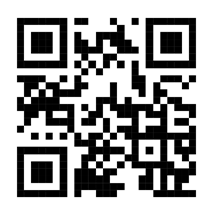Feline blood groups are inherited. Our understanding is that they have a relatively simple blood group system. Feline blood groups are described as A, B, or AB blood type (Day, 2012). There are three alleles that control the AB blood type. The A allele is dominant over the B allele and the phenotype AB is the result of the third allele (aa/b or ab/ab), this allows codominance expression of both A and B.
Commercial kits are available to perform in-house blood typing and determine if a cat is Type A, B, or AB. It is worth noting, a 2011 study by Seth et al reported discordant AB results using some in-house typing kits; for cats that tested positive for FeLV, these cats were later typed as Type A.
Blood typing is of critical importance in cats due to the natural presence of alloantibodies in plasma that are produced in the first few months of life in Type A and B kittens (Knottenbelt et al, 1999). This means that no prior transfusion is necessary for felines to be ‘sensitised’. Therefore, blood must be type matched at every transfusion, including the first. Type A cats typically have lower levels of naturally occurring anti-B antibodies whereas Type B cats typically have high levels of anti-A antibodies.
Red cell product recommendation
Type A cats must receive Type A blood products. If a Type A cat receives Type B blood products, the transfused blood is likely to have a shorter half life and, in some cases, cause a more severe transfusion reaction.
Type B cats must receive Type B blood products. The high prevalence of naturally occurring antibodies directed to Type A blood carries a very high risk of serious and potentially fatal transfusion reactions. Even 1ml of transfused blood can cause a fatal reaction.
Type AB cats have no alloantibodies to either Type A or Type B antigen. However, if they receive whole blood from either a Type A or Type B cat, there is a risk of transfusion reactions due to antibodies in the donated plasma. Therefore, when using whole blood, Type AB whole blood is ideal, but Type AB donors can be challenging to find. A more practical choice would be to use Type A packed red cells or washed Type A red cells. If these are unavailable another option would be Type A whole blood which contains relatively low levels of anti-B antibodies resulting in a milder reaction compared to the very strong anti-A antibodies found in the plasma of Type B whole blood causing a more severe reaction. Cross matching prior to transfusion helps to reduce the risk of transfusion reactions related to incompatibilities.
| Recipient type A | Recipient type B | Recipient type AB | |
| Donor type A | okay | may be fatal | possible reaction |
| Donor type B | reaction | okay | reaction |
| Donor type AB | reaction | may be fatal | okay |
Transfusion reactions may be acute or delayed and may be immunologic or non-immunologic (e.g. transfusion associated circulatory overload). Clinical recognition of transfusion reaction may include one or more of the following: fever, tachycardia, tachypnoea, vomiting, urticaria, haemolysis, sepsis, and reduced survival time of red cells. If signs of acute transfusion reaction are seen, the transfusion should be stopped immediately and supportive therapy provided as needed, according to the nature of the reaction.
Plasma product recommendation
Cats must receive plasma products of the same blood type to prevent transfer of the naturally occurring antibodies present in plasma should a different type plasma be administered.
Feline blood typing with the Alvedia QuickTest
Pet Blood Bank supplies the Alvedia QuickTest for feline blood typing. This is an in-house kit that is very straightforward to use and gives a result within five minutes. The video below explains how to use the kit to blood type your patient. You can also download a guide on how to blood type using the QuickTest at the bottom of this page.
Record your results with the Alvedia mobile app
The Alvedia app allows you to scan and record the results of your blood typing tests. The compatibility feature advises which blood type would be appropriate for treating your patient and you can troubleshoot any issues that might have occurred with the test. The app can send you a copy of the result by email, and you can contact Alvedia directly if you need further support.
Scan the QR code to access the app or visit the Alvedia website for more information.



